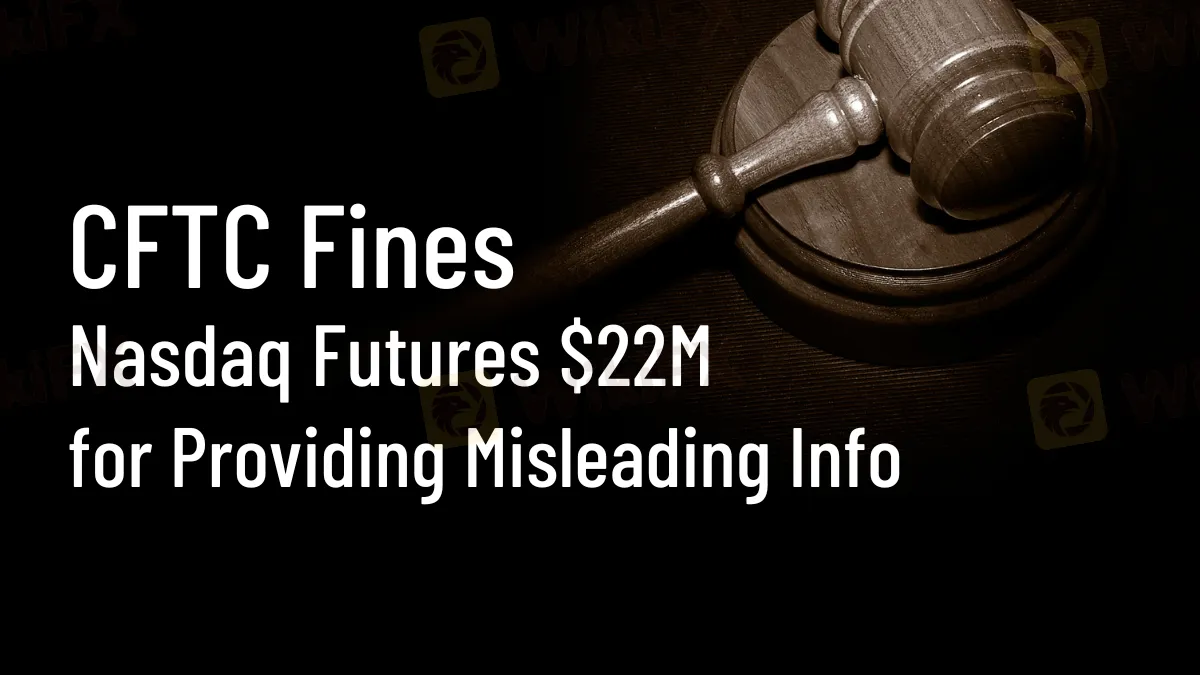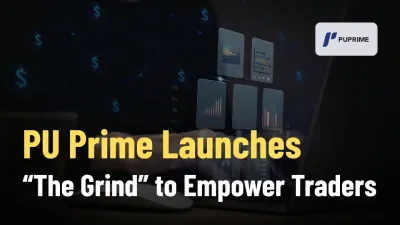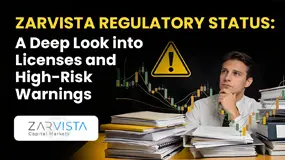PU Prime Launches “The Grind” to Empower Traders
Discover PU Prime’s new campaign, “The Grind,” and learn how trading discipline builds long-term success. Watch and start your trading journey today!
简体中文
繁體中文
English
Pусский
日本語
ภาษาไทย
Tiếng Việt
Bahasa Indonesia
Español
हिन्दी
Filippiiniläinen
Français
Deutsch
Português
Türkçe
한국어
العربية
Abstract:CFTC fines Nasdaq Futures $22M for providing misleading info and violating Core Principles. This penalty underscores the importance of transparency in financial markets.

Washington, DC - The Commodity Futures Trading Commission (CFTC) fined Nasdaq Futures, Inc. $22 million, a former designated contract market (DCM). The penalty is the result of the company's failure to disclose important data about its incentive programs to both the CFTC and the public, as well as submitting incorrect and misleading information to the regulatory body. This fine emphasizes the CFTC's strict regulation of market activities as well as the value of openness in the financial sector.
The CFTC's inquiry showed that Nasdaq Futures, Inc. failed to create, monitor, or enforce regulations governing an incentive program given to select traders on its platform. The Commodity Exchange Act (CEA) requires DCMs, such as Nasdaq Futures, to follow specified Core Principles aimed at maintaining market integrity and safeguarding participants. Among these principles is the duty to provide the CFTC, market participants, and the general public with accurate and full information.
Nasdaq Futures, Inc. failed in this respect by failing to disclose all aspects of its incentive scheme. In particular, the business did not notify the CFTC about a volume-based component of its “Designated Market Maker” (DMM) program. This component provides extra payouts to specific participants depending on the overall amount of contracts exchanged, a critical fact that was concealed in CFTC communications.
Nasdaq Futures, Inc., was a DCM that specialized in energy commodity futures contracts between July 2015 and July 2018. During this time, the business launched a number of incentive schemes, including the DMM program, which paid a set monthly stipend to market makers to boost market liquidity. However, the CFTC was purposely kept unaware of the existence of a volume-based incentive inside this scheme.

According to the CFTC's ruling, Nasdaq Futures, Inc. provided incorrect and misleading information concerning the DMM program. When questioned by CFTC officials, workers consistently denied the existence of volume-based incentives despite the fact that such payments were given to some program participants. These practices violated the CEA and undercut the CFTC's expectation of trust and openness from regulated firms.
The CFTC's ruling also cited Nasdaq Futures, Inc.'s failure to follow regulatory service provider guidelines. The corporation was instructed to contact three DMM program members about a particular trading activity, but it did not do so and did not record the reasons for its decision. This lapse added to the breaches of other DCM Core Principles.
CFTC Director of Enforcement Ian McGinley underscored the gravity of the infractions, adding, “The CFTC's oversight regime is dependent on CFTC-designated exchanges providing accurate information to the CFTC and market participants.” Nasdaq Futures, Inc.'s actions here constitute severe breaches of both its responsibility to furnish such information and multiple statutory Core Principles applicable to CFTC-designated exchanges.
The $22 million civil monetary penalty issued on Nasdaq Futures, Inc. exemplifies the repercussions of failing to comply with regulatory standards. The CFTC's action emphasizes the significance of openness and correct reporting in ensuring market stability.
This case is keenly watched by the financial sector, as it demonstrates the CFTC's commitment to holding corporations accountable for their activities. The penalties also send a strong message to all market players about the necessity of complying with regulatory requirements and the consequences of non-compliance.
The CFTC expressed gratitude to the National Futures Association for their help in this instance. Brett Shanks, Elsie Robinson, Jeff Le Riche, Brandon Wozniak, Margaret Aisenbrey, Jordon Grimm, Christopher Reed, Charles Marvine, and former Division of Enforcement employee Jo Mettenburg were all engaged in this case.
Nasdaq Futures, Inc. received a $22 million penalty for failing to disclose critical information and making deceptive representations to the CFTC. This case emphasizes the crucial necessity of regulatory compliance and openness in financial markets and confirms the CFTC's responsibility to ensure market stability.
Stay updated on this and other financial news by visiting our WikiFX news page for the latest updates and in-depth coverage.

Disclaimer:
The views in this article only represent the author's personal views, and do not constitute investment advice on this platform. This platform does not guarantee the accuracy, completeness and timeliness of the information in the article, and will not be liable for any loss caused by the use of or reliance on the information in the article.

Discover PU Prime’s new campaign, “The Grind,” and learn how trading discipline builds long-term success. Watch and start your trading journey today!

IG boosts FCA compliance by integrating Adclear’s AI tools. Learn how automation accelerates marketing approvals and ensures regulatory accuracy.

A close look at ZarVista's regulatory status shows major red flags that mark it as a high-risk broker for traders. This analysis goes beyond the company's marketing materials to examine the real substance of its licenses, business structure, and operating history. The main issues we will explore include its dependence on weak offshore regulation, a large number of serious user complaints, and worrying details about its corporate identity. It is also important to note that ZarVista previously operated under the name Zara FX, a detail that provides important background to its history. This article aims to deliver a complete, evidence-based breakdown of the ZarVista license framework and its real-world effects, helping traders understand the serious risks involved before investing.

When traders think about choosing a new broker, two main questions come up: Is ZarVista safe or a scam? And what are the common ZarVista complaints? These questions get to the heart of what matters most—keeping your capital safe. This article gives you a detailed look at ZarVista's reputation using public information, government records, and real experiences from people who used their services. Our research starts with an important fact that shapes this whole review. WikiFX, a website that checks brokers independently, gives ZarVista a trust score of only 2.07 out of 10. This very low rating comes with a clear warning: "Low score, please stay away!" The main reason for this low score is the large number of user complaints. This finding shows that ZarVista might be risky to use. To get the complete picture, we will look at the broker's government approval status, examine the specific complaints from users, check any positive reviews to be fair, and give you a final answer based on fact
